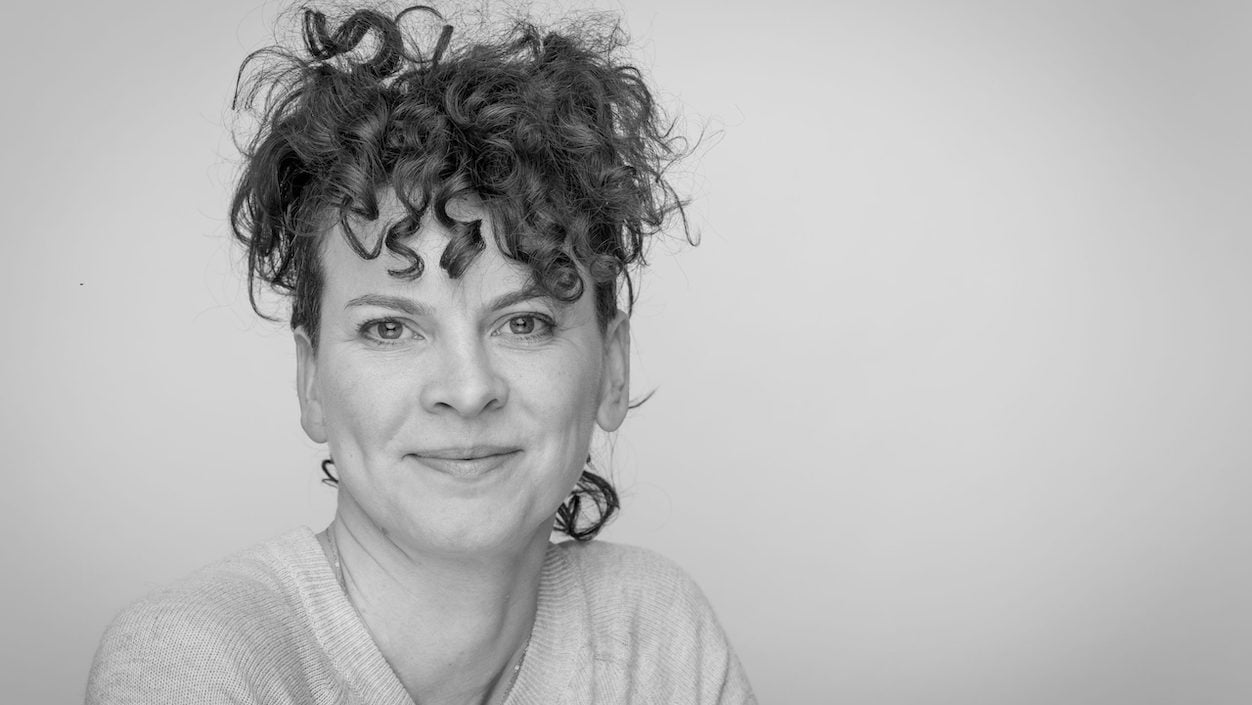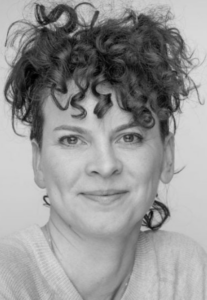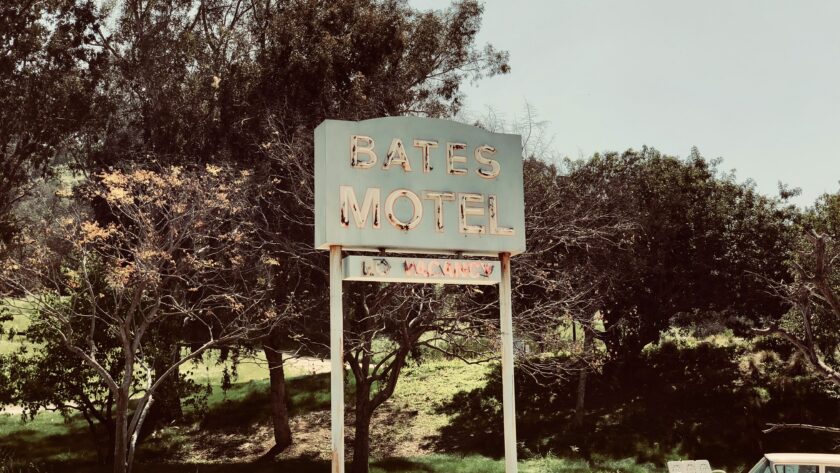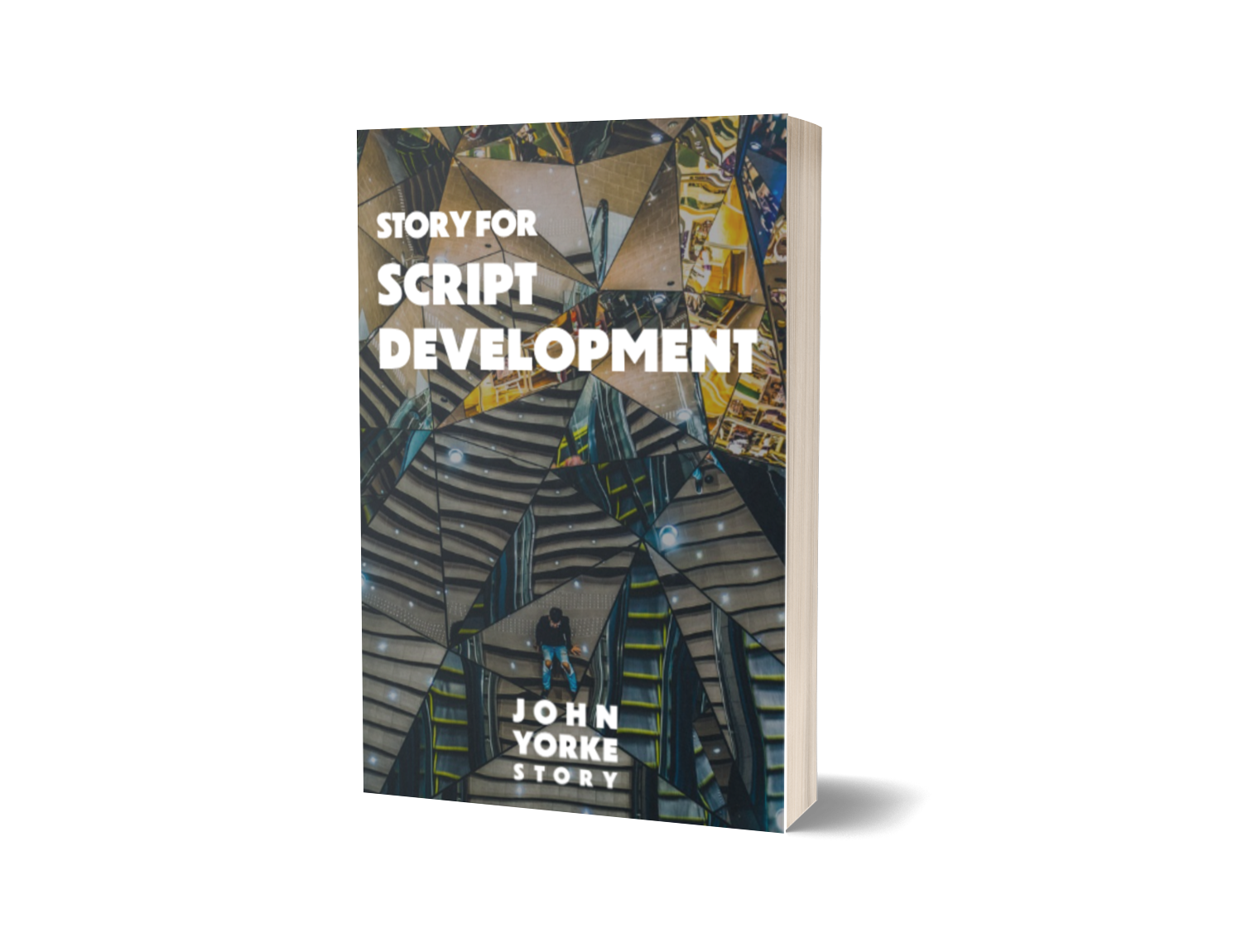Katherine Press – Hi Julia. What is BBC Studios, and how does it fit into the industry?
Julia McKenzie – BBC Studios is a commercial subsidiary of the BBC, formed of what was previously BBC in-house production – TV comedy, drama, entertainment, natural history and factual (news, religion, children’s and sport have stayed public service). BBC Radio Comedy is the only audio production team to have moved over to BBC Studios.
The thinking behind the move was that in-house production can only make product for the limited availability of slots on BBC channels, and if those slots are cut, where does that production team look to make up the shortfall? They can’t take that idea to Channel 4 or elsewhere. It doesn’t give programme-makers many bargaining chips if they can only submit to one supplier.
A commissioner can theoretically sit on your project for ages – there’s no ticking clock, they know that you can’t claim ‘in a month’s time I’m going to take this to Netflix, or wherever’, so it doesn’t give much agency to the producers, and therefore writers. So, BBC Studios is a way to address that and to try to target the global opportunities – to pitch to all those different companies, to Channel 4, Netflix, Amazon, etc.
In audio it might be less obvious [than in television] where the commercial opportunities are, but it’s things like Audible, Panoply, Spotify, other big digital platforms and podcasts. In their original format, podcasts tended to be chat-based (presenters talking around a subject), but they have become more and more sophisticated, with many higher-end productions, especially in America. There are actually some examples of American dramatic series podcasts being optioned for TV. In the past, radio has been regarded as a pipeline for TV, and it looks like podcasts are also beginning to fulfil that function.
KP – What is your role here at BBC Studios?
JM – My actual job title is Executive Editor of Radio Comedy but no-one knows what that really means, so I generally just say I’m Head of Radio Comedy! I run a team of about eight producers, about six production coordinators, a couple of execs and two staff writers. We come from a BBC in-house heritage which was making about 70% of Radio 4 comedy. That’s no longer the case because we’ve lost the in-house guarantee.
So, we’re still the biggest supplier of comedy to Radio 4, we still make the highest volume of stuff as a production company, but my challenge this year is to start looking for commercial opportunities. I’m talking to Audible, Spotify and others about possible commissions from them, and we will also look at branded opportunities (i.e. content paid for by a commercial brand).
In the past there were just a handful of independent companies submitting to us, but now, just as there are many production companies in TV, you can see the field opening up in radio.
– Julia McKenzie
KP – Who else is submitting productions to BBC Radio?
In the last spring submission round, the results of which came through in August, there were around 100 different production companies who submitted projects to [BBC Radio 4 Comedy Commissioner] Sioned William. In the past that wasn’t the case, there were just a handful of independent companies submitting, but now, just as there are many production companies in TV, you can see the field opening up in radio. Some are parts of a larger company – Hat Trick and Avalon make radio content as well – whilst some are boutique companies which specialise only in audio production.
KP – As a writer, would one approach those independent production companies, as well as BBC Studios?
JM – Yes. You wouldn’t approach Radio 4 directly, just as you wouldn’t approach BBC1 directly. You need to find a production company to bring your script to life, so you could come to us and we’d work out if it’s something we want to develop, or you could go to in-house Radio Drama or one of the many other independent production companies.
KP – Could you talk us through the submission process?
JM – A good idea is a good idea at any time. There is just one commissioning round per year for Radio 4, and drama and comedy are both at the same time – we call it the spring commissioning round. Guidelines go out in January, or possibly just before Christmas, and then we have an official launch day when the guidelines are published online. You can read them, and any other commissioning briefs, at www.bbc.co.uk/commissioning. You’ll find a lot of interesting material there: information from TV controllers and commissioners, videos about the process and, in some cases, for TV, breakdowns for specific slots.
So, the guidelines are issued and will divvy up all the different opportunities, and that’s what we work to. But here at BBC Studios we are in rolling development across the year, as it’s not just Radio 4 for which we make content. A lot of the other companies we make for don’t have commissioning rounds, they have rolling commissioning, with no deadlines. That includes BBC Sounds, which is the new umbrella title of the audio offering for BBC Radio – they’ll be commissioning some digital only productions (i.e. original podcasts) but also narrative projects. That’s a rolling commissioning, which can be pitched to at any time. Then the companies like Audible, Spotify, they don’t have commissioning rounds. If I have something that comes through that I think is really good, there are a number of people I can go to with it at any point.
KP – Have you observed any trends in comedy writing, particularly radio comedy?
JM – There’s a lot of confessional comedy at the moment – you just have to go to the Edinburgh Festival to see that! That’s been happening for a few years. You’ve got people talking about difficult issues – mental health, bereavements etc. – using comedy as a way to tackle that. That’s interesting because while there might be a set of circumstances or a particularly unusual thing that they’ve had to cope with, a number of us will have had similar things in our lives, so there’s some sort of universal truth to be found.
There’s a certain reverberation coming from the whole #MeToo movement that’s coming through, not just in women’s writing but also men’s reaction to that.
– Julia McKenzie
There’s been a trend, probably inspired by Fleabag, of messed up female protagonists trying to make sense of the world – promiscuous sex and that sort of thing. I know a lot of female comics are particularly interested in talking about things like slut-shaming and so on at the moment. There’s a certain reverberation coming from the whole #MeToo movement that’s coming through, not just in women’s writing but also men’s reaction to that. And, of course, a lot of people write mockumentary. It’s always been a good device, and The Office is probably the best definitive example of that, but more recent examples include People Just Do Nothing. In the United States I suppose Parks and Recreation, and even Modern Family, fit that mold.
KP – How far should writers be conscious of such trends when they’re writing?
JM – Remember that people are always looking for originality and distinctiveness, so check that your idea hasn’t already been done! And if it has been done, acknowledge that, but tell us why and how your idea is different. What can be frustrating, as someone in a position of commissioning – I’m not a Commissioner, but I effectively commission internally – is if people approach you and they clearly haven’t listened to current output, and are pitching a formula that has already been running for several series.
I would expect at least a modicum of research before submitting something, because I think ‘well if you can’t be bothered, I’m not sure I can!’ It’s inevitable that people are influenced by the things they admire, but just avoid offering something of a very similar premise. Or, if you know someone has got a police sitcom that’s been running for ages, and you’re also pitching a police sitcom, then just acknowledge it – say ‘there is X, and I think it’s great, but this is different in this way’. That would help.
It’s important to be able to summarise your idea concisely. It’s a skill you need throughout the process, and if you can’t summarise your idea in a couple of sentences there’s probably a problem with it. You need to be able to get the essence of it over as economically as possible. Other people might call it the Elevator Pitch, or the Bus Stop Pitch [summarise your pitch before the lift doors open, or before the bus arrives]. It’s something that can be helpful to incorporate into your submission, so I, or whoever it is, can get to see the essence of it.
It’s also important for writers to be able to understand the difference between what it is that they’re writing and what it’s about. For example, ‘it’s about people in an office doing X, but really it’s about relationships, or loneliness, or whatever’. Sometimes people can’t spot the difference between the two, and you find yourself reading a script and thinking ‘yes, but what is it actually about; what’s the writer trying to say?’
Authenticity is a word that gets bandied about a lot these days, but if you’ve written a sitcom about adoption, I’d like to know what made you strike out in that direction and if you have a personal connection to it.
– Julia McKenzie
If there’s also a personal element to the piece, it’s quite nice to know that. Authenticity is a word that gets bandied about a lot these days, but if you’ve written a sitcom about adoption, I’d like to know what made you strike out in that direction and if you have a personal connection to it. You might not be adopted yourself, but your best friend might be, and this arose from that conversation; or if you’re writing a piece about a mixed-race child trying to come to come to terms with one aspect of their heritage, I’d like to know if that is your experience, or that of someone close to you.
Otherwise, if you don’t feel it’s underpinned by any real experience, you wonder if they’re pitching it because they feel it’s what someone’s looking for, or it’s ‘on trend’, or what everyone’s talking about at the moment. In other words, it’s a commercial strategy rather than coming from an authentic place.
KP – Should comedy writers study comedy?
JM – There’s a lot of instinct in comedy. You often have a sense of whether someone’s got funny bones or not – a gut feeling – and obviously comedy is very subjective. Some people would say it’s anathema to study comedy, and you can’t dissect a joke, but if you are really hungry to learn more about the craft I would encourage doing so. Some people don’t want to do that – they have a particular voice, they know what they feel is funny and exactly what they want to say, and they don’t want to compromise in any respect.
If you have that kind of talent and vision I’d say, ‘hooray that’s amazing!’, but, particularly when you’re looking at structuring your work, I’d say there’s no harm in studying the craft more. That could be simply binge-watching lots of sitcoms or comedy films and analysing them – ‘there’s the setup of that storyline; that’s the next beat; ah, I see what they did there to surprise us’ – because you can learn an awful lot from people who do it brilliantly, particularly if they’ve got writers’ rooms behind them.
There is a lot you can learn from reading scripts too – seeing how things are set out on the page, and being quite analytical about the process. I’m talking about the economy of the lines, the beats of the story, the distinctive pattern of one character’s speech as opposed to another’s. It can even be an interesting exercise to watch a show with subtitles, so you really hone in on the craft of the writing.
That can be especially useful with US comedies where the writing is so lean – every word counts and each one is the funniest word for that sentence at that moment in the story. I’m not saying you want everyone to replicate all of those things that they’ve analysed, but there is so much brilliant material out there that you could gain a lot by studying it. I would worry if someone’s never heard any comedy on the radio, doesn’t go to stand-up comedy, doesn’t watch any comedy on television, but wants to write it, because I sort of think, do you really love it, do you really need to write it?
KP – How important is formatting when it comes to radio scripts? A lot of our students are used to screenplay formatting, which is standardised, but from looking at radio scripts on the BBC Writers Room site, there appears to be more variation.
JM – Formatting isn’t really an issue as long as it’s easy to read. A lot of people write radio scripts on Final Draft, and that’s absolutely fine, it’s good and coherent. When you’re submitting a script, I’d say it’s probably best to send it though as a PDF [exported from Final Draft], rather than the Final Draft file, because not everyone has the Final Draft program and so won’t necessarily be able to open it. But, for us, Final Draft is a pain towards the end of the process, because we work with Word documents and we need to be able to get in and edit it to fit our formatting here at the BBC. So, at some point we have to do a transfer from Final Draft to Word – it’s so labour-intensive and makes the production coordinators’ lives a misery.
You don’t need to have loads and loads of scene description or acting direction, just where you think it’s needed to get emotion over that might not be on the page.
– Julia McKenzie
Having said that, we’re used to it, and we can live with it. It’s also true that some very successful individuals submit their work handwritten, which we then need to transcribe. But they’ve earned the right to do that, so don’t get any ideas – we don’t have the staff to start extracting text from vellum parchment! So, a Word document is absolutely fine, just as long as it’s clear to follow: the characters should be on the left-hand side or in the middle of the page, you should have reasonable spacing so it’s easy to read, and it’s helpful to have scenes numbered (which some software will do for you) so that you don’t read it as a continuous piece and not realise when you’ve started a new scene.
You don’t need to have loads and loads of scene description or acting direction, just where you think it’s needed to get emotion over that might not be on the page. However, I don’t think anyone’s going to be overly precious about formatting.
KP – I think that will be reassuring for people to know.
JM – I don’t know anyone in my team who would disregard something because of its formatting (as long as it doesn’t give you a headache trying to read it!), although I suppose there’s a difference between professional and unprofessional.
KP – Yes, I mean we’re not talking sloppy.
JM – No. Definitely spellcheck your work. It’s not great to see typos, or apostrophes in the wrong place. Obviously, there might be a reason why someone struggles with that – they might be dyslexic for example, and there’s no problem with that – but if you know that it’s an issue, then be sure to take notice of those red or green squiggly lines on the spellchecker or get it checked by someone else. It’s that attention to detail. I can understand if you’re rushing to a deadline – human error happens to us all – but try to be as meticulous as possible about spelling and punctuation. It shows you’ve put effort into the submission.
KP – What are your thoughts on writers working across different types of comedy?
JM – I suppose when people are starting out they’re trying to work out what type of comedy they want to do, so I think it’s fine to try different things. I guess ultimately you have to go with what you find the most fun. But, there can be an easy transition between types of comedy writing, which makes logical sense, and I think that it can help to give you a good foundation. Quite a common path will be starting out writing one-liners or sketches, because they’re very good ways of learning to write jokes. It’s like when you see these fantastic impressionist or cubist painters, or someone like Tracy Emin; you know that they’ve got the grounding in fine art, they’ve got the skills – if they wanted they could do a chocolate box rendition of a countryside scene – but once they know the basics, they can then create their own interpretation.
You can say the same for comedy writing – it’s really useful to learn how to tell a joke economically. It’s about a beginning, a middle and an end, it’s about a twist, it’s about setting up an expectation, it’s about surprising people, and it’s about making sure every word counts. And you might be terrible at it at the start but it’s something you’ve got to keep practising. A good way to do that is by submitting to something like [BBC Radio 4 Extra’s] Newsjack, which is a non-commissioned show. There are two series a year, and anyone can submit topical one-liners, either about things in the news or about imaginary nonsense things, or they can submit sketches.
Sketches are another brilliant way to learn your craft as a writer. Sketch-writing is a form of storytelling, and it requires you to come up with strong comic characters with a strong comic outlook, and show how efficiently and effectively you can make those characters live and breathe. I’d say the optimum length for a sketch is about two and a half pages, and within that you’ve got to tell a mini story and surprise us at the end so that we go out on a laugh. It’s difficult to get right, but a lot of people have started out in sketch writing. There’s a very long list of people who’ve gone through Saturday Night Live in America, who’ve cut their comedy teeth that way.
So many legends started out in radio – Douglas Adams, Armando Iannucci, John Lloyd, Miranda Hart, Sally Phillips, Simon Blackwell, Chris Morris, Tony Roche… The list is endless.
– Julia McKenzie
In this country you’ve got people like Graham Linehan and Arthur Matthews who started out doing sketches and have gone on to write really successful narrative pieces [including Father Ted and The IT Crowd], or David Walliams and Matt Lucas, who started out writing sketches on Little Britain. So, there is that tradition. You might start with satirical one-liners or sketches, then move into longer-form pieces, and then you go on to do dramas etc. There is a legendary show called Weekending that used to be on Radio 4 many years ago. The list of writers who came through that is insane, and many of those are highly successful long-form writers now. In fact, more broadly, so many legends started out in radio – Douglas Adams, Armando Iannucci, John Lloyd, Miranda Hart, Sally Phillips, Simon Blackwell, Chris Morris, Tony Roche – the list is endless.
KP – Is it a good idea to have talent attached to a project when submitting?
JM – Well, if you’re best mates with George Clooney, it wouldn’t hurt…! If you have a particular in, if you happen to have access to a piece of talent that would take us a lot of work with an agent to get to, that’s definitely something worth bringing to the table. But it can be exceptionally difficult to do that. I think it can be useful to say, ‘I’ve written this role with X in mind’, or ‘I think that X would be brilliant in this role’, and it would help me as a cold reader to hear the voice in my head. Sometimes it can help writers, too. If they’re really passionate about an actor, they might think ‘I’d love to write a vehicle for that person’, and just being able to hear that voice as they write is enough to aid the writing process itself. Because, with the best will in the world, even if X says ‘yes, I like that, and I’d be happy to do that role’, then of course when it gets commissioned it might be going out 18 months later and X just isn’t available.
That said, the right performing talent is essential if you’re ultimately to get the project sold, so do bear that in mind. Work with your producer on who would be brilliant as your star, or if you love a particular stand-up, for instance, think about writing a piece around them.
KP – What are your feelings on adaptations, as opposed to original work?
JM – We used to do more adaptations than we do now. We’ve done a few quite well-known books, and of course BBC Radio Drama do a fair few, but it’s something that we’re looking at more in the future. I work with David Reed a lot with our Penny Dreadful Radio 4 plays, and most are original, but we have done a strong comic take on Homer’s Odyssey and Cervantes’ Don Quixote, plus a re-imagining of Macbeth, so that can be a fun way in to play with iconic works. Recently John O’Farrell adapted his own book which was about his life as a Labour supporter and we made that for him. It’s something we’re talking to Audible about.
If a writer had a classic book, say Alice in Wonderland, that they have always been a massive fan of and would love to reimagine – either keeping true to its classical context, or just reimagining it – then that would be of interest to me. Equally, it could be an old series of books that was long forgotten about but was very popular in its time and they’d like to revive. Or, it might be you’ve read a really funny book and you think, ‘actually, I can really hear this as an audio play’. The original author might agree to give us the rights for you to adapt it because they don’t have the time or the inclination themselves. That would definitely be of interest.
There aren’t many examples of things being made for television and then adapted for radio – it tends to be the other way around. We certainly get offered things that were rejected for television – often people offer stuff that’s just too expensive for television, but on radio we can create worlds at relatively little expense.
KP – Any final tips?
JM – Something to bear in mind in writing for radio is the importance of the writer-producer relationship. It’ll end up being a really important relationship in your career, so I would always advise people to listen out for the producer’s name at the end of a programme or find it online. If you like something that person has produced, the chances are that they might have similar taste to you and might like your work. You can get in touch and say, ‘I liked X, and I have this which is a bit similar – could you take a look?’ Remember that the first person you meet may not be the right fit – you might not particularly click with each other – but you can keep looking.
The writer doesn’t work in isolation; it’s a really symbiotic relationship in radio – far more so than in television, where you get massive crews, and lots of different people making decisions about your work.
– Julia McKenzie
It’s worth it because ultimately they will be the person who helps realise your vision. They’re the person who will go to their boss in the department and try and get some money for a script, they’re the people who will fight for you, help develop it with you, and then they’re there making it with you – and you want them to make the right choices with casting and editing etc. The writer doesn’t work in isolation; it’s a really symbiotic relationship in radio – far more so than in television, where you get massive crews, and lots of different people making decisions about your work. But, if you can establish a positive writer-producer relationship in radio, it really could be a transformative thing for your career.
Julia McKenzie is Head of Radio Comedy for BBC Studios. She oversees a team of producers who work with a range of talent on shows that include stand up, sketch, satire and panel as well as sitcoms and comedy drama for Radio 4, Radio 2 and some commercial outlets. Her production credits for Radio 4 include eight comedy plays for Radio 4’s The Penny Dreadfuls Present:, written by David Reed, and sitcoms The Wilsons Save The World written by Marcus Brigstocke and Sarah Morgan and Quiz Nite written by Steve Punt and Hugh Dennis.






